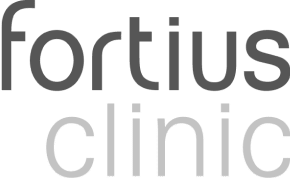When it comes to managing patient data, clinics often ask: How can I be sure my clinic software keeps us compliant? It’s a fair question, and a critical one, considering how sensitive patient data is. Two key regulations to know about are HIPAA and GDPR – both have major implications for clinic management software. Let’s break down what each of these means and how Meddbase helps clinics stay compliant.
What is HIPAA Compliance?
The Health Insurance Portability and Accountability Act (HIPAA) is a US regulation designed to safeguard patient information. Any healthcare software that handles medical records needs to comply with HIPAA, ensuring that data is kept secure, confidential, and available only to authorised personnel.
Key HIPAA Compliance Requirements include:
- Data Encryption: Patient data must be encrypted to prevent unauthorised access. Meddbase uses robust encryption standards that align with HIPAA requirements.
- Access Control: The software must restrict who can access patient data. Meddbase allows clinics to set access roles, ensuring only the right team members can view sensitive information.
- Audit Trails: Tracking changes is vital. Meddbase automatically logs activities, allowing clinics to see who accessed what and when.
By providing features like access control and audit trails, Meddbase ensures that clinics in the US remain compliant while benefiting from the efficiencies of a digital system.
Learn more about how Meddbase manages HIPAA compliance here.
What is GDPR Compliance?
GDPR (General Data Protection Regulation) is a European regulation designed to protect the privacy of personal data. It applies to any business processing the personal information of EU citizens, including clinics that use management software.
Key GDPR Compliance Requirements include:
- Data Minimisation: Only collect the data you need. Meddbase helps clinics collect just the right amount of information required for patient care, avoiding unnecessary data.
- Right to Access: Patients have the right to see what data is held about them. Meddbase’s patient portal makes this straightforward, enabling patients to view and manage their own records securely.
- Data Breach Notifications: GDPR requires that breaches are reported quickly. Meddbase’s infrastructure includes automated alerts and detailed logging to ensure any potential breaches can be quickly identified and reported.
For clinics across Europe, Meddbase’s compliance tools provide the peace of mind that sensitive patient data is always handled in line with GDPR regulations.
How Meddbase Helps Clinics Stay Compliant
Security Measures: Meddbase uses secure cloud infrastructure to store all patient data, which means that it benefits from continuous updates and best-in-class security practices. The platform also ensures regular security audits are conducted to identify any vulnerabilities before they become a risk.
Role-Based Access Control (RBAC): One of the core features of Meddbase is its ability to set permissions for different users. This means you can control exactly who gets to see what, from medical staff to administrative team members. Role-based access control is essential for both GDPR and HIPAA compliance, giving you confidence that sensitive data is only accessed by those who need it.
Audit Logs and Reporting: Both HIPAA and GDPR require transparency around data handling. Meddbase automatically creates audit logs, tracking all activity related to patient records. This audit trail not only keeps clinics compliant but is also useful for troubleshooting and monitoring employee interactions with the software.
FAQs on Compliance with Meddbase
Does Meddbase automatically encrypt all patient data?
Yes, Meddbase encrypts all patient data both in transit and at rest, ensuring complete compliance with HIPAA and GDPR.
How does Meddbase support patient rights under GDPR?
Meddbase includes features like patient data access through the patient portal, which allows patients to review, correct, or even delete information, supporting their rights under GDPR.
What happens if there’s a data breach?
Meddbase includes features to quickly detect breaches. Notifications are issued promptly, and audit logs are used to assess the situation and prevent future incidents.
Benefits of Compliance Beyond Just Avoiding Fines
Compliance isn’t just about avoiding hefty penalties; it’s also about building trust. Patients are more likely to engage with your clinic and share important health information if they feel their data is secure. With Meddbase, compliance with HIPAA and GDPR goes hand-in-hand with providing a great patient experience. By keeping data safe and accessible, you’re demonstrating that your clinic values privacy – which is critical in today’s healthcare environment.
Putting Patients First with Secure Technology
Meddbase isn’t just about ticking compliance boxes; it’s about making sure that patients come first. By adhering to HIPAA and GDPR standards, Meddbase empowers clinics to focus on delivering quality care without worrying about data breaches or non-compliance issues.
Check out more on Meddbase’s approach to compliance and security.
For additional insights into how Meddbase boosts clinic workflow efficiency while staying compliant, head over to our efficiency solutions page.
Related Resources
- Efficient Appointment Scheduling and Patient Engagement
- Customising Meddbase for Specialty Practices
Compliance can be daunting, but with the right software, it doesn’t have to be. Meddbase helps make your clinic’s compliance journey smoother, giving you the freedom to focus on what you do best – caring for patients.













